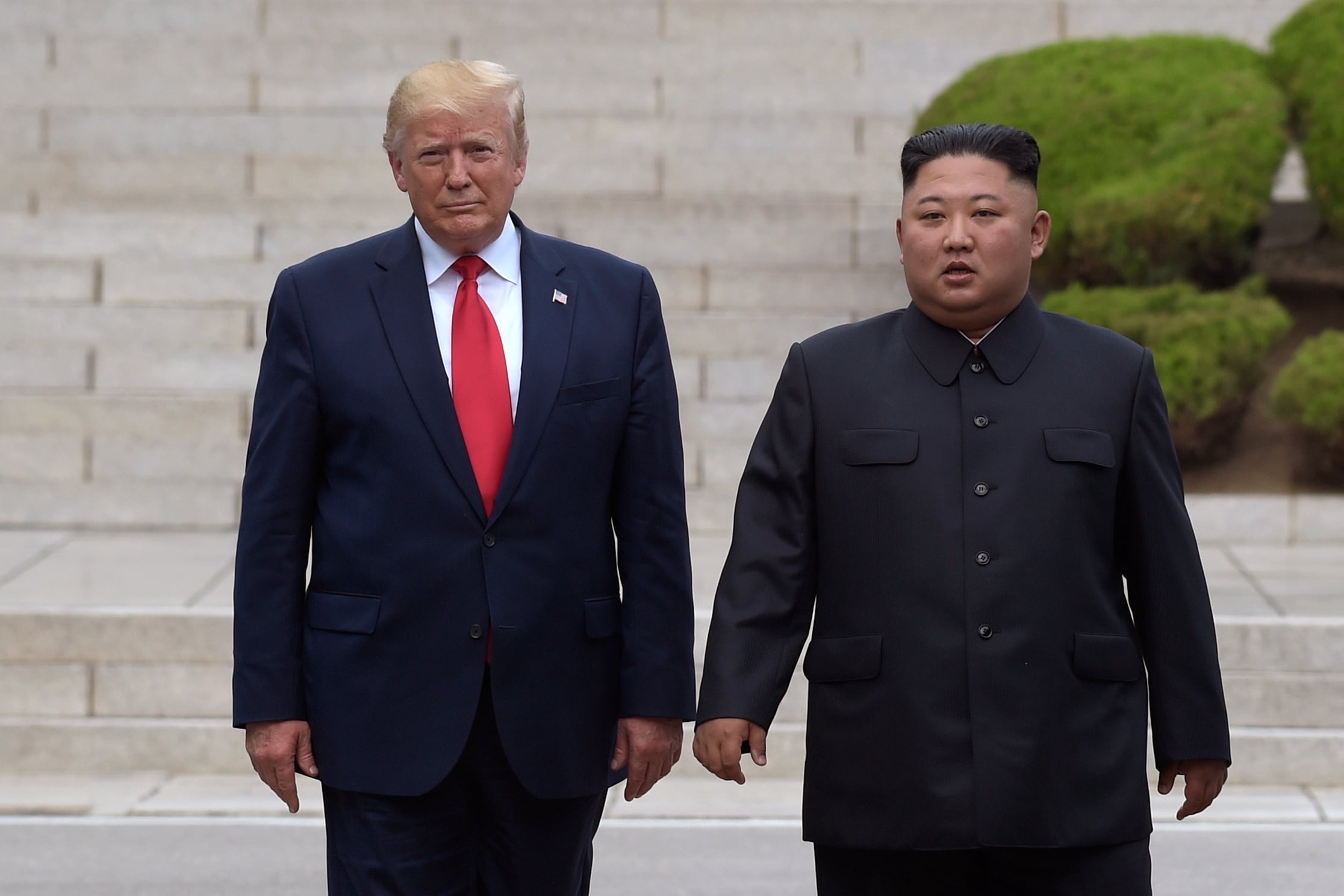HANOI, Vietnam — U.S. Defense Secretary Mark Esper ended an Asia tour Thursday with the same trio of troubles on the Korean Peninsula that he found on arrival last week. Together they pose risks to U.S. national security and to the future of Washington’s alliance with South Korea.
The toughest of these problems, and arguably the most consequential, is North Korea’s refusal to restart negotiations with Washington on eliminating its nuclear weapons.
Esper has no direct role in nuclear diplomacy, but he had hoped that his decision to postpone a military flying exercise with South Korea — which North Korea had criticized as provocative — would help nudge the North back to the negotiating table.
In announcing the postponement in the Thai capital last weekend, Esper called it an “act of goodwill” that would not degrade the combat readiness of U.S. and South Korean air forces. But the North quickly rejected the gesture, insisting the United States end its “hostile policy,” which it sees as the root cause of the tensions that prompted the North to go nuclear in the first place.
Esper told reporters Thursday in Vietnam’s capital, Hanoi, that he was disappointed by the North’s negative response.
“But I don’t regret trying to take the high road, if you will, and keep the door open for peace and diplomacy,” he said.
The problem, it now appears, is that the Americans have no idea what the North wants from Washington to end the diplomatic impasse. At stake is the possibility of a return to the level of tension that not long ago pushed both sides toward war.
Esper himself asserted last week that when he became Army secretary in late 2017, “we were on the path to war; it was very clear to me because the Army was making preparations.”
Bruce Bennett, a North Korea analyst at the RAND Corp., a federally funded think-tank, sees a dangerous diplomatic disconnect.
“North Korea has been unwilling to explain what an end to ‘U.S. hostile policy’ means other than to say that the U.S. must no longer treat North Korea as an enemy,” Bennett said in an email exchange this week. “The dozens of U.S. statements saying that the United States does not seek to destroy the regime have not met this North Korean requirement.”
Bennett thinks it’s possible that the North will be satisfied with nothing less than a withdrawal of all 28,500 American troops from South Korea and a dissolution of the U.S.-South Korean defense alliance that emerged from the 1950-53 Korean War.
North Korea has demanded that the U.S. come up by the end of this year with a mutually acceptable approach to resuming negotiations on eliminating the North’s nuclear weapons and the infrastructure that supports it.
“They may move in a different direction” at that point, Esper said Thursday. “So I think we have to keep pressing forward. It’s too important not to keep trying.”
RELATED

Complicating that effort is a new fissure between Seoul and Washington. The Trump administration is demanding a five-fold increase in the amount Seoul pays to keep U.S. troops in the country — up from just under $1 billion this year.
Esper is not leading those negotiations, but he said in Seoul last week that South Korea is wealthy enough to pay more. Shortly after that, the talks led by the State Department broke down. Seoul’s view is that Washington is making an unreasonable demand for billions more in payments.
Esper dismissed reports that the U.S. is threatening a partial troop withdrawal if Seoul does not meet Washington’s payment demands.
“We’re not threatening allies over this,” he said.
The third rift in relations that Esper encountered in Seoul is a standoff between South Korea and Japan — both U.S. defense treaty allies. Seoul says it will withdraw this week from an intelligence-sharing agreement with Tokyo, despite U.S. urgings that they settle their differences.
In Seoul, Esper told his Japanese and South Korean counterparts privately and in public that their dispute was only benefiting North Korea and China. But his words seemed to make no difference.





